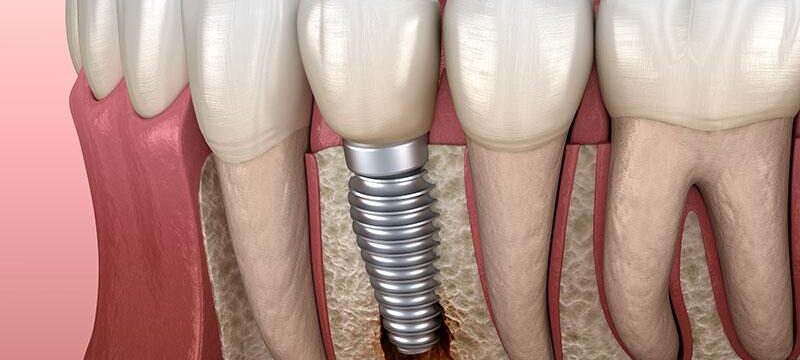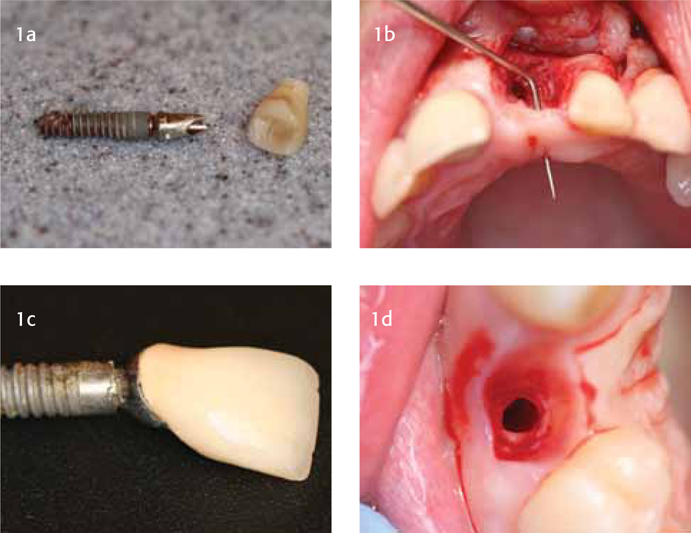
Dental implants have become a popular solution for tooth loss, providing a stable and functional alternative to dentures or bridges. However, like any medical procedure, they are not without risks. Understanding what happens if your dental implant fails can help you navigate this challenging situation effectively.
Causes of Dental Implant Failure
Dental implant failure can occur for several reasons, categorized into early and late failures.
Early Failures: These typically happen within the first three months after placement. Common causes include:
- Infection: An infection at the surgical site can prevent proper healing and osseointegration, which is essential for implant stability.
- Poor Bone Quality: Insufficient bone density or volume can hinder the implant’s ability to integrate with the jawbone.
- Surgical Errors: Mistakes during the surgical placement of the implant can lead to improper positioning or angling, affecting stability.
Late Failures: These occur after the initial healing period and can be due to:
- Peri-implantitis: This inflammatory condition affects the tissues surrounding the implant, leading to bone loss and potential implant failure.
- Mechanical Issues: Over time, issues such as excessive force from biting or grinding teeth (bruxism) can compromise the integrity of the implant.
- Systemic Health Factors: Conditions like diabetes or osteoporosis can affect healing and increase the risk of infection.
Symptoms of Implant Failure
Recognizing the signs of dental implant failure early is crucial for effective management. Symptoms may include:
- Mobility of the Implant: If you notice that your implant feels loose, it is a significant indicator of failure.
- Pain or Discomfort: Persistent pain around the implant site that does not improve may suggest complications.
- Swelling or Inflammation: Redness and swelling in the gums surrounding the implant can indicate infection or inflammation.
- Pus or Bleeding: Any discharge from around the implant site should be addressed immediately.
If you experience any of these symptoms, it’s essential to consult your dentist promptly.
What to Do If Your Implant Fails
If your dental implant fails, several steps should be taken:
- Consult Your Dentist: Schedule an appointment as soon as possible. Your dentist will assess the situation through clinical examination and imaging studies.
- Diagnosis and Treatment Plan: Depending on the cause of failure, treatment options may include:
- Removal of the Implant: If there is significant infection or instability, removal may be necessary.
- Bone Grafting: If bone loss has occurred, grafting may be required before a new implant can be placed.
- Antibiotics or Other Medications: In cases of infection, your dentist may prescribe antibiotics to manage it before further treatment.
- Consider Alternatives: After addressing any complications, discuss alternative options with your dentist. This might include a new dental implant or other restorative options.
Preventing Dental Implant Failure
While not all failures can be prevented, several strategies can reduce the risk:
- Choose an Experienced Dentist: Selecting a qualified professional with expertise in dental implants is critical for successful outcomes.
- Follow Post-operative Care Instructions: Adhering to your dentist’s guidelines after surgery helps ensure proper healing.
- Maintain Good Oral Hygiene: Regular brushing and flossing around your implants are essential to prevent peri-implantitis.
- Regular Check-ups: Routine dental visits allow for early detection of potential issues with your implants.
For those considering dental implants Rockville, it’s crucial to work with professionals who understand both the procedure’s intricacies and how to manage any complications that may arise.
Conclusion
Dental implants are an effective solution for tooth loss but come with inherent risks. Understanding what happens if your dental implant fails allows you to take proactive steps in managing complications. By recognizing symptoms early and seeking prompt care from a qualified dentist, you can improve your chances of successful treatment and maintain your oral health. Always prioritize preventive measures and regular check-ups to safeguard your investment in dental implants.

